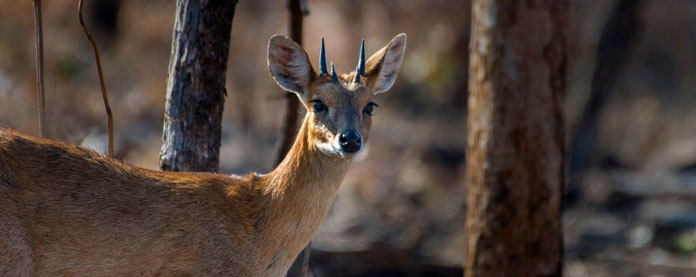Exploring the Biodiversity of Dudhwa: An Eco-Friendly Adventure

Dudhwa National Park, nestled in the Terai region of India's Uttar Pradesh, is a treasure trove of biodiversity. In this eco-friendly tour blog, we embark on a journey to explore the stunning landscapes, rich wildlife, and unique ecosystems of Dudhwa while promoting sustainable travel practices.
1. Sustainable Travel Choices- Our eco-friendly adventure began with sustainable transportation choices. We opted for eco-conscious modes such as trains or shared rides, reducing our carbon footprint. This not only minimized emissions but also allowed us to connect with the local culture during our journey.
2. Stay at Eco-Lodges- Dudhwa offers eco-friendly lodging options that are dedicated to sustainability. These accommodations incorporate energy-efficient practices, source local produce, and utilize eco-friendly toiletries. By staying at such places, we minimized our environmental impact and supported local efforts for a greener future.
3. Guided Safaris- To explore Dudhwa's wilderness, guided Jeep Safari in Dudhwa are a must. Local experts led us through the park, ensuring responsible wildlife-watching practices. We maintained a respectful distance from animals, reducing stress on wildlife, and participated in the conservation efforts that protect the national park.
4. Rhinoceros Encounters- Dudhwa National Park is renowned for its Indian one-horned rhinoceros population. Our safari brought us close to these magnificent creatures. With binoculars in hand, we observed them from a safe distance and learned about the park's conservation initiatives. This unforgettable experience emphasized the importance of preserving these endangered animals.
5. Avian Paradise- Dudhwa is a paradise for birdwatchers, with over 450 species of birds. We marveled at a variety of avian wonders, including the Bengal Florican, painted storks, and sarus cranes. By practicing silence during birdwatching and maintaining the delicate balance of the ecosystem, we ensured a minimal impact on their habitat.
6. Responsible Dining- We savored local cuisine prepared with fresh, organic ingredients. Dining at local eateries supported the regional economy and allowed us to relish the authentic flavors of the Terai. Additionally, we minimized plastic waste by carrying reusable water bottles.
7. Respect for Indigenous Culture- Our interactions with the indigenous Tharu community provided insights into their rich cultural heritage. We learned about their traditional practices and engaged in meaningful exchanges. Purchasing handmade Tharu crafts and participating in their customs supported their way of life.
8. Leave No Trace- Throughout our eco-friendly journey, we adhered to the 'Leave No Trace' principles. We packed out all waste, refrained from littering, and made sure that Dudhwa remained as pristine as we found it.
Conclusion:
Dudhwa National Park is an incredible eco-friendly travel destination. By making sustainable choices, respecting local culture, and participating in responsible wildlife viewing, we not only enjoyed an unforgettable adventure but also contributed to the preservation of this extraordinary wilderness. Dudhwa stands as a testament to the beauty and importance of responsible and eco-conscious travel.